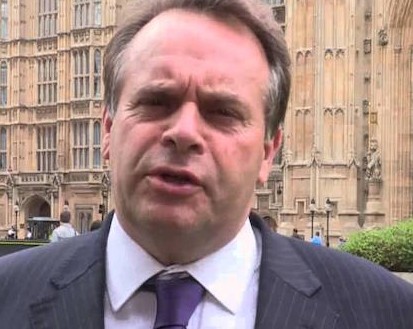An influential committee of MPs has demanded much greater clarity from Defra on its Brexit policies for food and farming.
In a report on the proposals outlined in Defra’s recent Health and Harmony Command Paper, the Environment, Food and Rural Affairs (EFRA) Committee calls for the Government to produce a farm productivity plan by May 2019. It calls for more detail on might constitute ‘public goods’ under a future agricultural policy, including how animal health and welfare could be included in this framework. It also demands clear reassurances from the Government that domestic production will not be undermined by lower standard imports.
The EFRA report, published today, welcomes the ‘level of ambition’ within the Command Paper document on the future of food, farming and the environment and supports its aim to create a new agricultural funding model based on using public money for public goods.
But, in sentiments echoing much of the evidence provided by the NPA and other organisations that gave evidence, the MPs express concern at the ‘absence of detail in the consultation’. “Too many central tenets of the policy remain unclear. Without clarity on funding, timing and delivery of the future agricultural policy, there is a risk that Defra’s welcome ambitions will not be met,” it concludes.
Some of the key points and recommendations in the report include:
- The MPs ask the Government to produce a farm productivity plan by May 2019 addressing the consultation’s failure to address the fact that UK agricultural productivity is falling behind many of its competitors and the barriers to improving it.
- The report outlines measures this should cover, including investigating new tax breaks to help farmers invest in technology, further details on what could be funded under capital grant support and funding to facilitate for farmers working together and leading projects.
- It calls for the Government commit to fully funding future agricultural policy, including ring-fencing the money saved from the removal of direct payments, noting that there have been ‘minimal discussions’ between Defra and the Treasury over the future funding.
- It calls a sector-by-sector analysis of the impact of removing direct payments.
- Under the public money for public goods agenda, the MPs recommend that Defra commits to exploring how the funding of animal health and welfare as public goods could be achieved through trials during the agricultural transition period.
- The report quotes the NPA statement that ‘protecting and improving animal health is a vitally important public good and that Government should place equal value on this as it does on environmental protection’.
- It says the Defra consultation paper ‘lacks discussion of wider food policy and has failed to link agricultural policy to wider public health goals and reducing diet-related diseases’. Healthy food should be supported as a public under the new funding model.
- Defra is urged to do more to ensure greater use of healthy, affordable, British food in Government procurement.
- The MPs call on Defra to clearly state that it is Government policy that trade agreements should ‘always contain provision to prevent food which does not meet our environmental, animal welfare and food safety standards from entering the country’.
- The Government is urged to improve country of origin labelling following the UK’s departure from the EU and introduce mandatory method of production labelling.
EFRA chair Neil Parish (pictured) said: “Defra’s consultation is ambitious and we welcome much of its intent. There is a notable lack of detail in the Government’s paper, however, and we seek more clarity on funding, delivery, and timing. The Government risks not achieving its ambition and risks damaging the sector. The Government should respond to the farming sector’s concerns and provide clarity as soon as possible.”
Reaction
NPA senior policy advisor Ed Barker said: “This is another excellent report from EFRA that is very positive for the pig industry as it sets out some of the opportunities that exist but holds the Government to account over the many gaps in its Command Paper vision.
“We wholeheartedly agree with EFRA that we need more clarity from Defra across many key policy areas.
“We welcome many of the committee’s other conclusions and recommendations, including its calls for a food productivity plan that explores tax incentives and grants funding options in detail and its stance on animal welfare and animal health as public goods.
“We also reiterate the committee’s call for the Government to provide a clear and unambiguous statement that it will prevent imports of food produced to lower standards than permitted in this country.”
NFU president Minette Batters said: “The findings from the Efra Select Committee will be welcome news for farmers and growers, who have long been calling on the Government to provide clarity on future funding and how British farming’s high standards will be protected post-Brexit.
“British farming operates to some of the highest standards in the world. The report’s recommendation that the Government does not enter into trade agreements that allow food imports that do not meet our environmental, welfare and food safety standards is particularly welcome. It is vital that British farming’s produce and contribution to the nation is not undermined.
“The NFU is pleased to see the Committee request that government produce a farm productivity plan by May 2019 and believe this could be a vital tool in ensuring that farm businesses are able to perform at their best and continue producing high-quality, safe, traceable food for the nation.”
CLA president Tim Breitmeyer said: “We are pleased MPs have added their voice to our call for Government to focus on a plan for boosting farm profitability. Getting this aspect of post-Brexit right must be considered to be a vital precondition of any moves to remove the basic payment system with a clear strategy, worked up and funding allocated.
“The Committee provides a timely reminder that production of healthy food is, and must remain, the most important land use in our countryside.”




